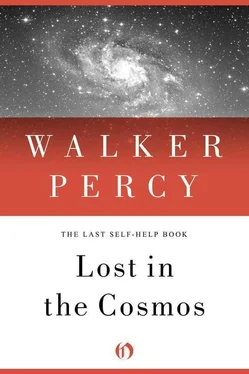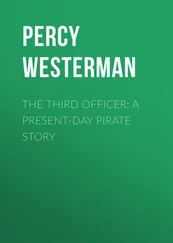*This efficacy of fashion-by-mistake is similar to metaphor-by-mistake — those instances when a word misread is better than the word intended like the ordinary belt doing its ordinary duty holding up pants being perceived as not as desirable as a belt with buckle worn to the side. Consider Empson’s example of metaphor-by-mistake:
Queenlily June with a rose in her hair
Moves to her prime with a languorous air
Nice lines — because he misread Queenlily as Queen Lily, when the poet had only intended the adverb of queenly.
*What does a woman mean when she says “I don’t have a thing to wear,” when in fact she has a closet full of clothes? While her statement seems absurd to her husband or a connivance to get more clothes, she is telling the truth. She does not have a thing to wear because all the things hanging in her closet have been emptied out and become invisible.
She might as justifiably reply to him: “Why do you need a new car? This one works perfectly well.”
(3)The Nowhere Self: How the Self, Which Usually Experiences Itself as Living Nowhere, is Surprised to Find that it Lives Somewhere
ON THE JOHNNY CARSON Show, it always happens that when Carson or one of his guests mentions the name of an American city, there is applause from those audience members who live in this city. The applause is of a particular character, startled and immediate, as if the applauders cannot help themselves.
Such a response is understandable if one hails from a hamlet like Abita Springs, Louisiana, and Carson mentioned Abita Springs. But the applause also occurs at the mention of New York or Chicago.
Question: Do Chicagoans in Burbank, California, applaud at the mention of the word Chicago
(a) Because they are proud of Chicago?
(b) Because they are boosters, Chamber of Commerce types, who appreciate a plug, much as a toothpaste manufacturer would appreciate Carson mentioning Colgate?
(c) Because a person, particularly a passive audience member who finds himself in Burbank, California, feels himself so dislocated, so detached from a particular coordinate in space and time, so ghostly, that the very mention of such a coordinate is enough to startle him into action?
(CHECK ONE)
Thought Experiment: You are a native of New York City, you live in New York, work in New York, travel about the city with no particular emotion except a mild boredom, unease, exasperation, and a dislike especially for, say, Times Square and Brooklyn, and a longing for a Connecticut farmhouse. You make enough money and move to a Connecticut farmhouse. Later you become an astronaut and wander in space for years. You land on a strange, unexplored (you think) planet. There you find a road sign with an arrow, erected by a previous astronaut in the manner of GIs in World War II: “Brooklyn 9.6 light-years.” Explain your emotion.
(4)The Fearful Self: Why the Self is so Afraid of Being Found Out
A RECENT POLL ASKED people what they feared most. A majority of respondents agreed in ranking one fear above all others, above fear of sickness, accidents, crime, war, even death. It is the fear of speaking before a group, stage fright. Yet in the conventional objective scientific view, man is an organism among other organisms and a man should therefore not be terrified to be surrounded by his own kind, other like organisms who are not merely not hostile but by the very nature of the occasion well disposed, and to open his mouth and speak in a language he has learned from his fellowmen. A wolf howling alone in a wolfpack doesn’t get stage fright.
Question: What is so frightening to so many people about speaking to an audience?
(a) Is it because the ever-present chance of making a fool of oneself is multiplied by the number of listeners, so that an audience of 50 persons is 50 times more terrifying than one? Is an audience of 50 million a million times more terrifying than 50?
(b) Is it because, since one person, friend or stranger, is often difficult to deal with, 50 people are 50 times more difficult?
(c) Is it because, say with an audience of 500, you are being looked at by at least 499 people whose gaze you cannot defend against by looking back, that is, you are being seen from this or that vulnerable angle where your mask or persona may not be in place?
(d) Is it because you fear a total failure of performance such as never happened in the history of the world, so that not one word will come to your mind and world chaos will follow? As evidence of such a danger, note the uneasiness of a playgoing audience when an actor forgets his lines or a congregation when a preacher falls silent for no apparent reason. The escalating terror of such a silence is a public phenomenon: five seconds of such silence is a very long time, ten seconds is almost intolerable.
(e) Is it because you know that what you present to the world is a persona, a mask, that it is a very fragile disguise, that God alone knows what is underneath since you clearly do not, perhaps nothing less than the self itself, and that if the persona fails, what is revealed is unspeakable (literally, because you can’t speak it), like what was revealed when the Phantom of the Opera had his mask ripped off, a no-face, a vacancy, a hole which is much worse than the ugliest face — so frightening, in fact, that you remember, as a child, crawling under the seat in the movie?
Thought Experiment: If you are a shy person, which of the following situations is the most terrifying to you? Which is the least terrifying?
In the first, you are a mid-echelon executive in the sales division of a large company in which you are both successful and well liked. You are scheduled to deliver a speech at the annual banquet, an honor. You have months to prepare.
In the second, you are the character Richard Hannay in Hitchcock’s The Thirty-nine Steps. Pursued down a street by his enemies, he ducks into a doorway which happens to be a stage door and finds himself on stage at a political rally where he is mistaken for the guest speaker and introduced. He has not the faintest idea what he is supposed to talk about.
In the third, the world’s population has been destroyed by nuclear wars. Only you have survived. The earth is invaded by extraterrestrial beings. They capture you and haul you up before a large tribunal and make it known to you that you must give an account of yourself, what you are doing here, why you should be spared, etc.
Explain your choice.
Thought Experiment (II): Explain why Moses was tongue-tied and stagestruck before his fellow Jews but had no trouble talking to God.
Explain on what grounds Christ told his followers not to worry if they were arrested and required to testify before a court of their enemies. You will know what to say, he told them. Did he imply that it is easier to talk to enemies than to friends and that the real problem arises when one is required to address one’s fellow Christians in the church at Corinth?
(5) The Fearful Self (II): Why the Self is so Afraid of Being Stuck with Another Self
JOHNNY CARSON, WHEN QUESTIONED about his aplomb on the stage before a TV audience of millions, replied: Sure, I’m at ease up here — because I’m in control — but when I’m at a cocktail party and caught in a one-on-one conversation: panic city!
Question: What do Johnny Carson and other shy people fear when they are caught in a “one-on-one” conversation at a cocktail party? That is, what is the worst case, the worst thing that can happen?
(a) That you can’t think of anything interesting to say and the other person will be bored?
Читать дальше












